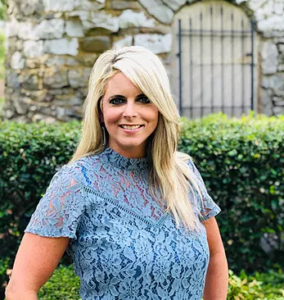We all want to be financially free, right? Living under the burden of bills, saving, and trying to figure life out feels impossible and overwhelming at times.
What if we told you that achieving financial freedom is within your reach – you just have to know the do’s and don’ts of handling your personal finances.
Here’s what you should know.
Do Write Down your Personal Financial Goals
Be honest with yourself and dream big! Write down those goals you want to achieve. How else can you achieve them if you don’t name them?
Write down any goal that comes to mind. Just jot them down as you think of them and you can prioritize them later. For now, you’re doing a ‘brain dump’ to see what is really on your mind that you may not let yourself think of because of the burdensome bills that plague your mind and keep you up at night.
Don’t Copy Someone Else’s Financial Goals
If you’re drawing a blank, give yourself some time. No two people have the same financial goals. Instead, think about what you want for your future. Ask yourself questions like:
- What does retirement look like for me?
- What goals do I have for the next few years? Buying a house? Buying a car? Paying for college?
- How much debt do I have that I want to pay off and when?
- What is my credit like? Is there room for improvement?
- Do I have ‘fun’ goals like taking a dream vacation or buying a vacation home?
Let these questions guide you to come up with your own financial goals without comparing them to anyone else.
Do Check your Net Worth and Financial Situation Often
Too many of us assume we know our financial situation when we really don’t. A yearly checkup at a minimum will help you determine where you stand.
Life changes and sometimes our goals, portfolio allocations, and even our assets change. If you had a sudden financial crisis, check up on your net worth. What changed? Is your home still worth as much as you thought? Did you refinance your mortgage and use up some of your home’s equity? Did your investment portfolio tank?
Take a good, hard look at your current financial situation and decide what changes (if any) are necessary.
Don’t Make Drastic or Emotional Financial Changes
It can be easy to freak out when the stock market tumbles or if your home loses value. You may find yourself wanting to jump out of your investments or take any remaining equity out of your home before you lose more but take a breath.
Making drastic or emotional financial changes will only hurt you in the long run. Instead, take a step back, and see how the market plays out or what steps you should take next. Most of the time, holding onto the same pattern will see the issue correct itself.
If you need to make changes, do them with a clear head after some research to make sure you don’t make rash decisions that you’ll regret down the road.
Do Keep your Emergency Fund Separate from your Spending Money
If you have an emergency fund, keep it separate from your checking account or any other account you use often. It’s best to open an online high-yield savings account that you can’t easily access. The out of sight, out of mind mentality may help you avoid using the funds for something that isn’t a true emergency.
Choosing a high yield savings account can help your money grow faster too, so you’ll have earnings on top of your contributions that you set aside should the unexpected occur.
Don’t Use your Emergency Funds for Anything Except an Emergency
Set rules for your emergency fund so you don’t accidentally use them for anything but a true emergency.
Traditionally, emergency funds are only for the following instances:
- You lost your job
- You fell ill and can’t work
- You’re injured and can’t work
If you’re unable to work for a long period and you won’t get any disability pay or any other compensation, then your emergency fund can help cover your expenses during that time while you figure things out or take care of yourself so you can go back to work.
Do Set up Automatic Deposits
We all get busy and typically the one thing that takes the back burner is saving. Instead of leaving it up to chance, set up automatic deposits.
There are plenty of ways to do this. Here are a few examples:
- Send a portion of your paycheck to your savings account each month with the rest going to your checking account
- Automatically contribute to your employer-sponsored 401K
- Set up automatic transfers from your checking account to your savings account each month or each payday
- Open an account with an app like Acorns and have all of your purchases rounded up to the nearest dollar with the difference sent to your savings or investment account
Don’t Leave Saving to Chance
Too many of us spend first and save last. We figure we need to pay our bills right away when we get paid and then we spend money because we finally have some. We tend to put saving on the back burner, which means it doesn’t happen.
Instead, make saving a regular part of your budget. Treat it like a bill that you must pay each month and put the money in your savings or investment account first before you spend. This way you won’t spend what you could be saving.
Do Create a Budget
Even if the word budget makes you cringe – do it. Budgeting isn’t as hard or restrictive as most people think.
A budget is a plan for your money. It tells your money where to go. Without a budget, you might overspend and not even know it. With a budget, you know what bills you must pay, where you should be saving money (and how much), and how much money you have for spending and fun.
Without a budget, you may never reach your financial goals.
Don’t Keep the Same Budget Without Revisiting It
Your budget can change often, but you have to revisit it to see what needs to happen. For example, if you get a raise, pay off a bill, or don’t have the same bills each month, your budget may change.
If you keep the same budget, you may miss opportunities to save or invest more money. Every few months, sit down and see where your budget stands. Assess how you’ve done, what’s gone right, and what you could do better.
This allows you to improve your personal financial situation often by seeing what’s working and what’s not and making the necessary changes.
Do Create a Plan to Pay off Debt
If you have a lot of debt, you need a plan to pay it off. Even if the plan takes you years to complete, at least you have a plan in place. Just haphazardly paying money toward your debt won’t get you out of it.
Create a strategic plan that makes sense to you. The debt snowball method is a common way to get out of debt. Here’s how it works.
- Order your debts from smallest to largest balance
- Make the minimum payment for each debt every month
- Determine how much extra money you have to pay toward your debt
- Put the extra money toward the smallest debt (the first in line)
- Keep doing this until you pay the first debt off
- Take the money paid to the first debt (minimum payment and extra money) and add it to the minimum payment for the second debt, continuing this until you are out of debt
Don’t Ignore your Debts
Your debts aren’t going to go away. If you don’t pay them long enough, they will get sent to a collections agency. This can hurt your credit even further because you’ll have a charge-off reported from your original creditor and a collection from the collection agency.
Collection agencies are usually ruthless in their efforts to get paid too. Rather than letting your debts get behind, get in touch with your creditor and see what payment arrangements you can work out to get back on track.
Key Takeaway
Your personal finances can be improved with a few simple steps. Take the time to revisit your budget, net worth, investments, and current strategies to see how they are helping or hurting your personal finances to get yourself back on track.
SOURCE: (2022). Everyincome.com. https://my.everyincome.com/site/library/earn/the-dos-and-donts-of-achieving-financial-freedom






